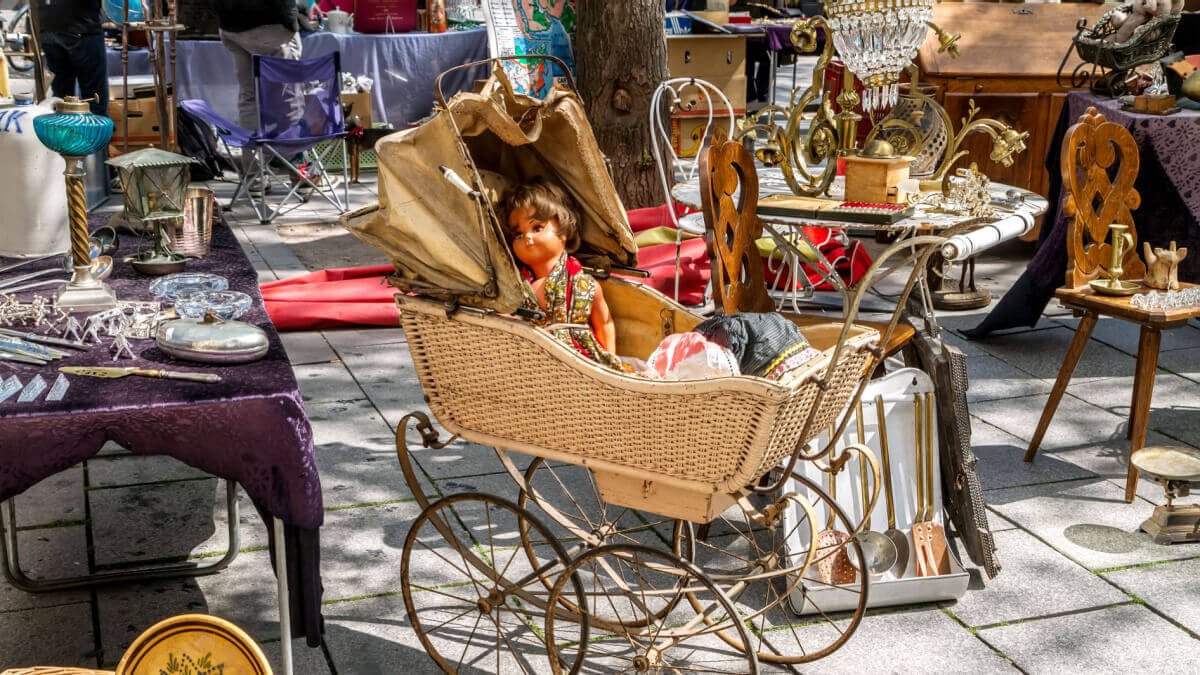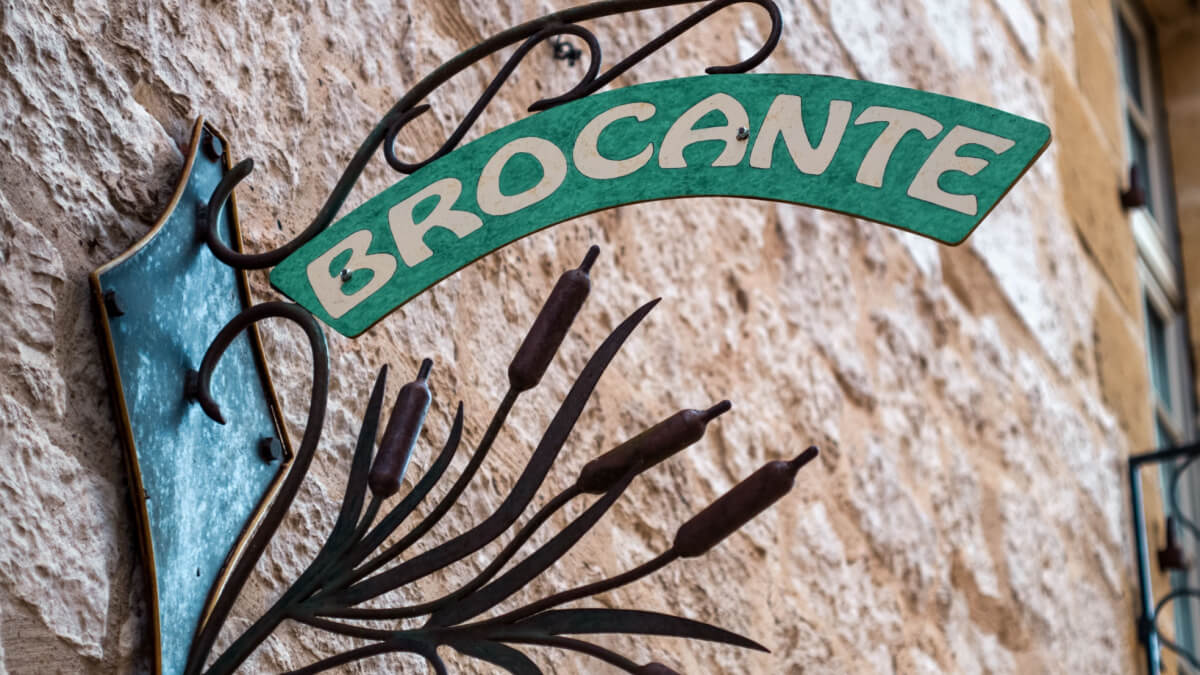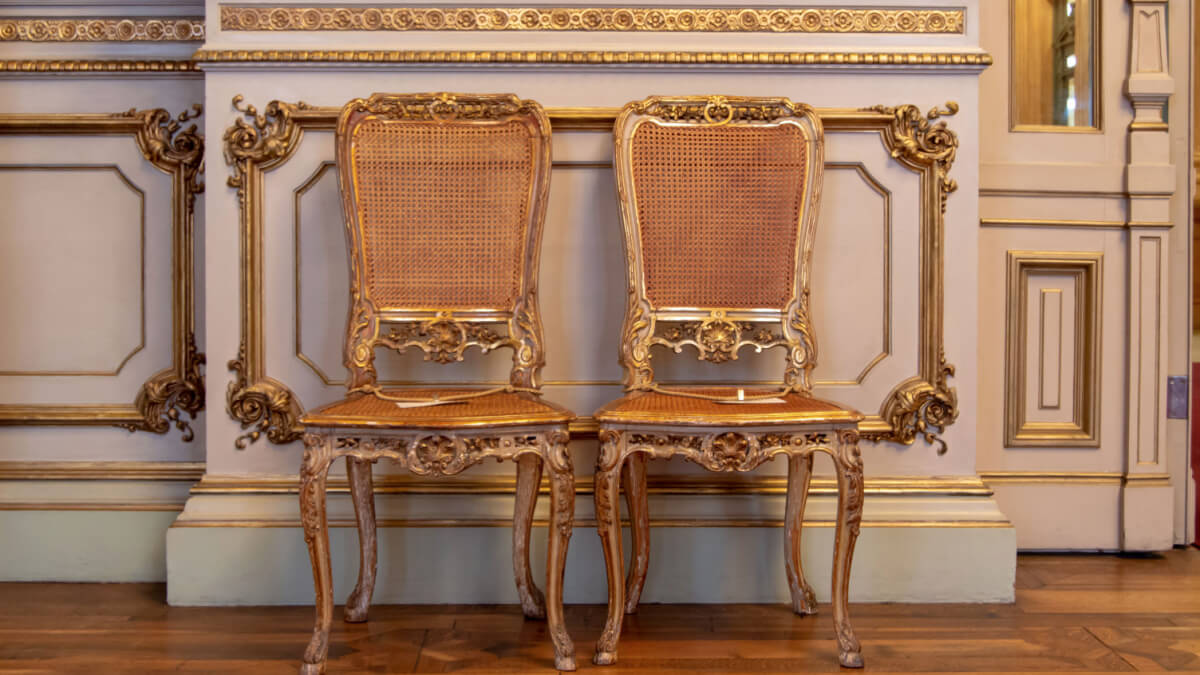VAT refund in France: A complete guide to tax-free shopping in France for tourists
You’re hoping to escape the English rain. Hop on a flight to France, and offset your expenses by adhering to this simple guide for accessing a VAT refund.

If you’re an antiques lover or collector from the UK, you’ll be in heaven in France. It’s a fantastic destination for antiques shopping, with all kinds of flea markets and special sales happening all over the country - as well as plenty of retail and high-end antiques stores.
But where are the best antiques markets in France, and what items should you be looking for? And how do you get your purchases back home to the UK again?
We’ll answer all of these questions and more here in this essential guide to buying antiques in France.
And if you need a smart way to purchase antiques in euros, without losing out to poor exchange rates and high fees - check out the Wise account from the money services provider Wise.
Please see the Terms of Use for your region or visit Wise fees & pricing for the most up-to-date information on pricing and fees.
Yes, there are no particular rules or restrictions in France on whether foreign nationals can buy antiques. This means you can browse and shop up a storm just like a local.
However, unlike a local, you will need to arrange shipping back to the UK, along with any customs or import charges and paperwork. We’ll look at this in more detail later on, so that you’ll have all the info you need.
There are a number of places to hunt out unique and beautiful antiques in France. Here are just a few of your options:¹
| 📚 Read more: The best UK bank accounts for travelling and travel insurance |
|---|
A brocante is essentially a French flea market, where stalls full of brocanteurs (antique dealers) sell antique and vintage goods. The word is also used for second-hand furniture stores.
You can expect an Aladdin’s cave of eclectic items at a brocante, with bric-a-brac and furniture where the selection and quality varies considerably between shops and stalls. It’s a great place for a rummage.

France has a huge number of internationally respected and popular antiques markets, so you’ll be spoilt for choice.
Here are some of the biggest and best antiques markets in France:
There are also a number of renowned antiques shops in France, along with auction houses, warehouses and whole districts of vintage stores.
Some of the best antiques and vintage shops in France include:
If it’s your first time antique shopping in France, you’ll need to know about the local customs. Here are some helpful tips to help you shop safe and smart, and get the best deal:
Another crucial thing to sort is how you’ll pay for your purchase. If cards are accepted, the Wise card is one of the best you can use.
The Wise card automatically converts your British pounds to euros when you spend, for just a small conversion fee. Best of all, it does the conversion at the mid-market exchange rate. This means you get more euros for your pounds, so you can splurge a little bit more at the flea market.
Learn more about the Wise card 💳
Please see the Terms of Use for your region or visit Wise fees & pricing for the most up-to-date information on pricing and fees.
Have something specific in mind? The great thing about French flea markets is that there’s usually a huge range of vintage and antique items available. This may mean you need a little luck and patience to find exactly what you’re looking for though.

For furniture, your best bet is one of the larger antiques markets where professional dealers are in attendance.
For example, La Grande Réderie in Amiens, a market held twice a year in which has over 500 professional dealers in attendance.
You can also try antiques dealers, such as the enormous Puces de St Ouen warehouse complex of markets and shops outside of Paris.
Maps and postcards are likely to be in abundance at any of the marché aux puces or brocante held in cities, towns and villages across France. You may also discover something interesting at a Vide-Grenier attic sale.
Paris is the best place to go for vintage boutiques and thrift shops, where there are hundreds to choose from. Look out for one of the branches of the Kilo Shop dotted throughout the city, where you can buy vintage clothing by weight. You’ll also find cool boutiques in the 9th and 10th arrondissements, as well as the Latin Quarter.
For everything else, flea markets and brocantes are the places to go. Although you can also pick up some gems at a local Vide-Grenier if you’re willing to put some rummaging time in.
| 📚 Read more: 7 best UK-issued prepaid travel cards for Europe |
|---|
You’ve browsed the stalls, snapped up a bargain and now you need to get it back home to the UK. Here’s everything you need to know about importing antiques from France.
It can be complicated to import larger items of antique furniture from France to the UK. The customs regulations, duties and taxes, and the required paperwork can be a little complicated - and getting it wrong can be costly.
So, it’s recommended to use a third party importer or shipping company to help you get your item safely back to the UK. The antiques dealer you buy from may be able to recommend a suitable company.
Antiques dealers tend to be specialists in their own area, such as in a particular era or type of furniture. So to find the best antique dealers in France, you may need to narrow down your search.
A great resource is the Antiquities en France website, where you can search dealers and experts based on location and specialism.
With your new purchase safely back home in the UK, all that’s left to do is find the perfect spot to show it off. It’s a good idea to look up some maintenance information, or ask the vendor for any advice before leaving France.
And make sure you consider insurance and security, to safeguard particularly valuable purchases.
If you and your antiques are settling in France, make sure to read our guide to buying property in France.
And that’s it - your essential guide to buying antiques in France. It’s a huge country, with each region boasting its own flea markets, antiques stores and sales, so you’ll be spoilt for choice.
Hopefully after reading this, you’ll have an idea of where to start planning your shopping trip. You can perhaps time your visit to France to coincide with one of the larger antiques markets. Happy shopping!
And, if you want a transparent, low-cost way to handle your travel expenses abroad, check out the Wise account and get the Wise card to spend with a fair exchange rate.
Please see the Terms of Use for your region or visit Wise fees & pricing for the most up-to-date information on pricing and fees.
Sources used for this article:
Sources checked on 18-Oct-2023.
*Please see terms of use and product availability for your region or visit Wise fees and pricing for the most up to date pricing and fee information.
This publication is provided for general information purposes and does not constitute legal, tax or other professional advice from Wise Payments Limited or its subsidiaries and its affiliates, and it is not intended as a substitute for obtaining advice from a financial advisor or any other professional.
We make no representations, warranties or guarantees, whether expressed or implied, that the content in the publication is accurate, complete or up to date.

You’re hoping to escape the English rain. Hop on a flight to France, and offset your expenses by adhering to this simple guide for accessing a VAT refund.

Check out our handy guide to using your Monzo card and account in European countries like France, including what fees you can expect.

Check out our list of the top, must-see places in France that you’d definitely want to visit when planning your dream road trip to the country.

Essential read for UK citizens driving in France with a full breakdown of requirements, driving rules and documentation – be prepared for your next trip.

A helpful guide to Eurostar London to Paris, including timetable, journey times, prices and how to find cheap Eurostar tickets.

The bohemian atmosphere of Paris has inspired hundreds of writers, artists and great romances. The city of love’s allure continues to draw tourists from all...